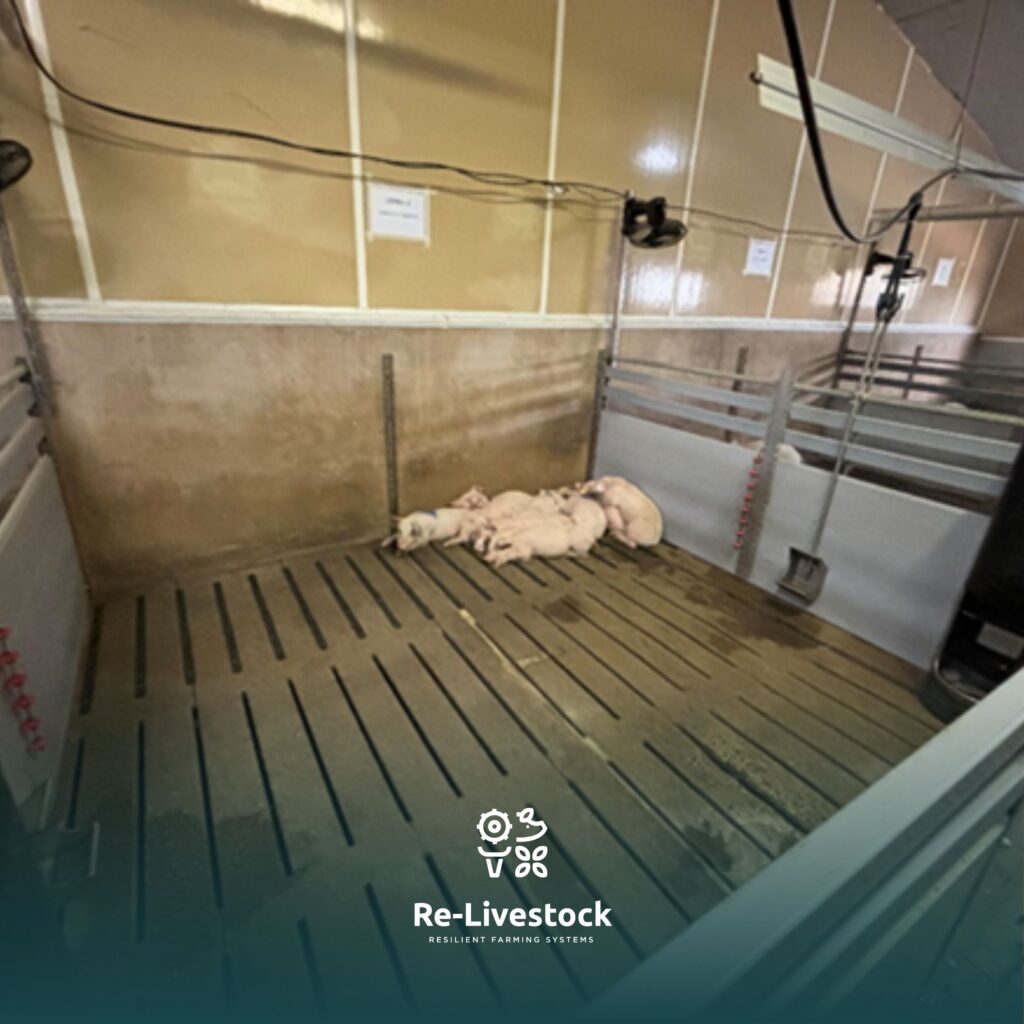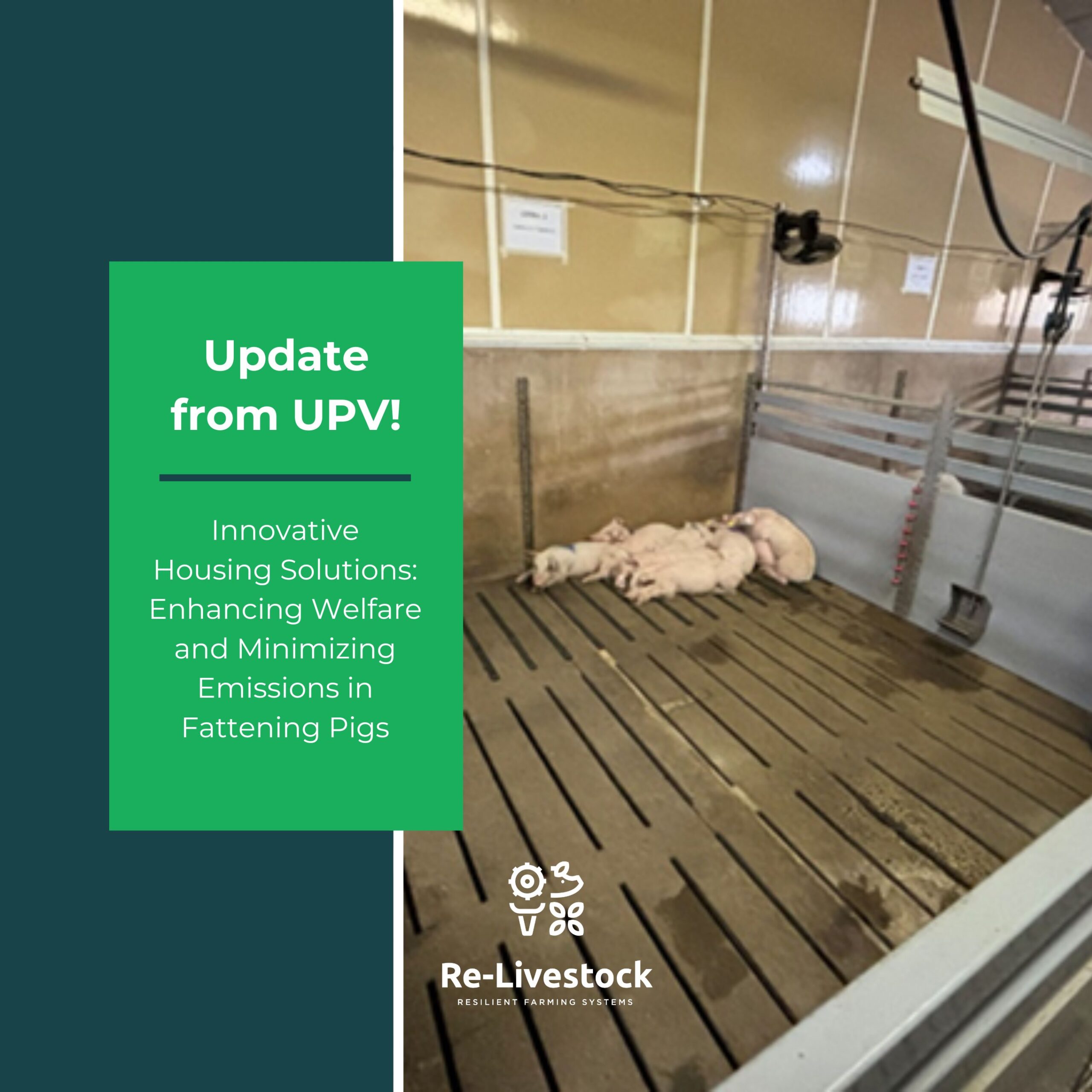The Re-Livestock Project is thrilled to announce key advancements in Work Package 4 (WP4) with the achievement of Milestone 17 (MS17) and Milestone 15 (MS15). These accomplishments highlight progress in optimizing pig housing to support both animal welfare and environmental sustainability, creating pathways for resilient, regulation-ready livestock systems.
Optimizing Pig Housing for a Sustainable Future
Adapting to new welfare and environmental standards is a priority for the intensive pig farming industry. Traditional slatted floors have been widely used, but animal welfare concerns are driving research into alternative housing options. Our team, led by Universitat Politècnica de València in collaboration with several research partners, explored solid-slatted mixed flooring systems as a potential approach to mitigate emissions and improve welfare. These innovative systems are studied for their potential to meet future regulatory and sustainability goals.
Research Highlights: Emissions and Animal Welfare Insights
The study included 128 pigs housed at the CITA-IVIA research facilities, where we continuously monitored ammonia (NH3) and carbon dioxide (CO2) emissions using advanced wireless sensors and precision livestock farming tools. Key metrics on animal performance, such as growth and productivity rates, were also collected. Our team gathered over 1,000 data points on emissions, temperature, and humidity, offering critical insights into the effects of ventilation strategies and flooring types on both animal performance and environmental outcomes.
Key Findings and Future Implications
Our preliminary findings indicate that different housing environments, ventilation approaches, and flooring types impact emission levels and productive parameters in varying ways. This comprehensive data set will serve as a foundation for further analyses, driving future recommendations for sustainable housing practices in pig farming.
By supporting evidence-based policies and resilient livestock management practices, our research aligns with the Re-Livestock project’s mission to foster environmentally conscious and welfare-oriented farming systems.

